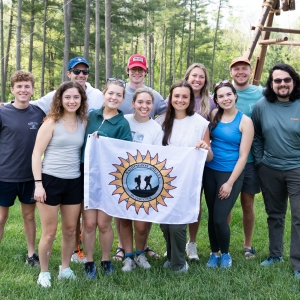
The Williams School
of Commerce, Economics and Politics
Established in 1905, the Williams School of Commerce, Economics and Politics is distinct among its peers–offering a business education within a larger liberal arts curriculum. In fact, Washington and Lee University is the only top tier liberal arts college in the United States to claim a nationally accredited commerce school. The Williams School has been fully accredited by the Association to Advance Collegiate Schools of Business (AACSB) since 1927. Student outcomes for Washington and Lee University are available from the Office of Accreditation and Institutional Research.











